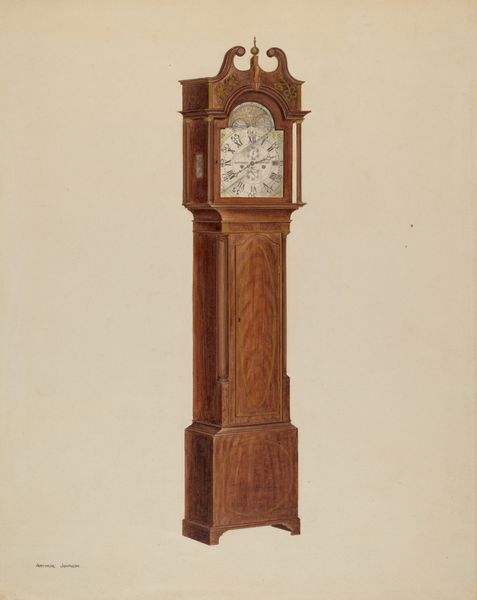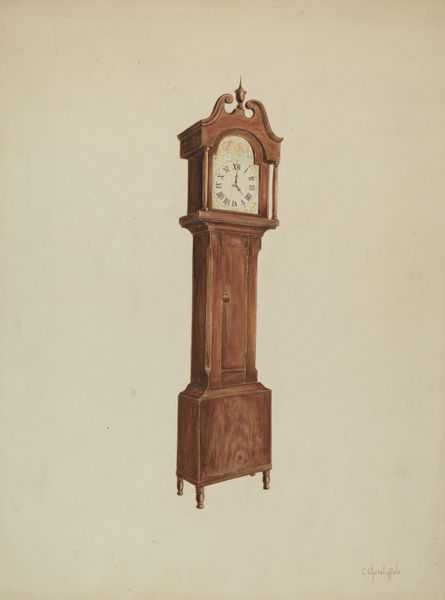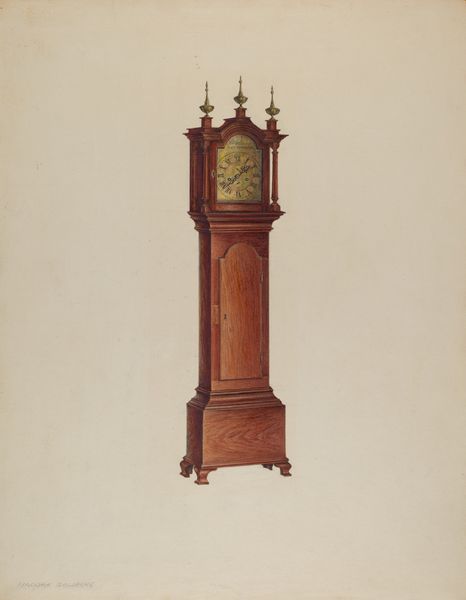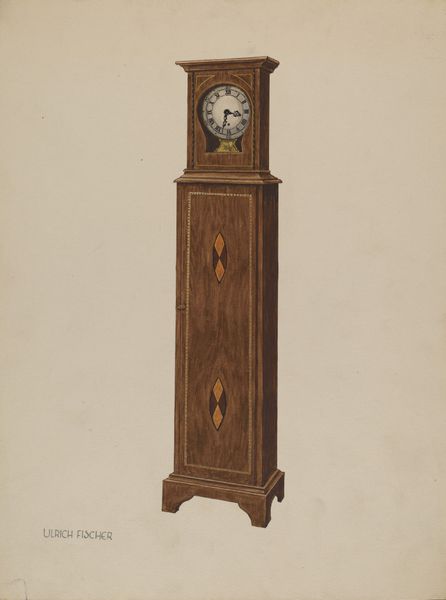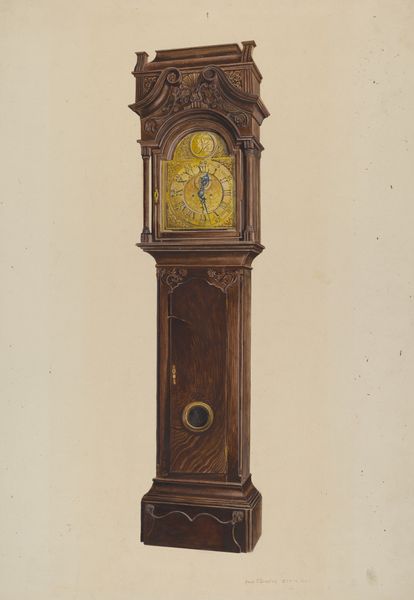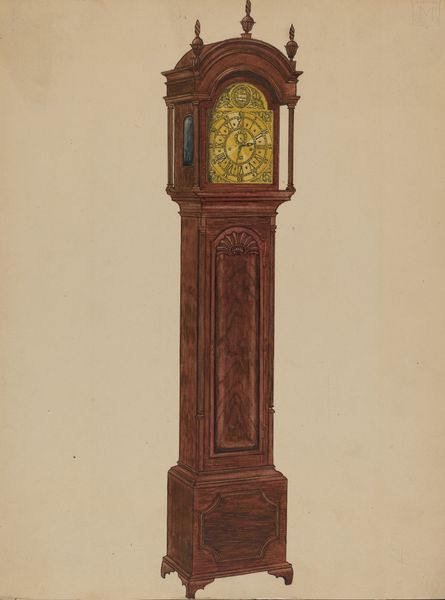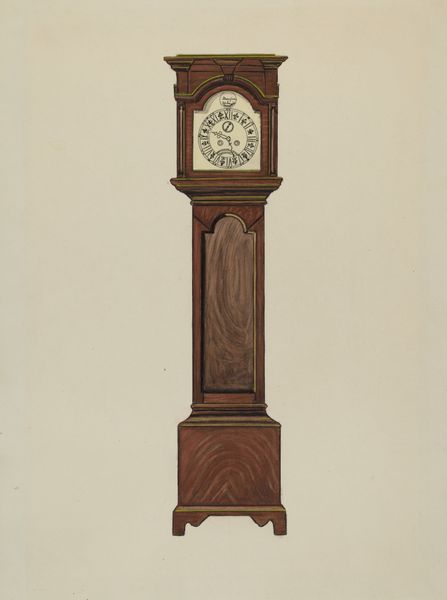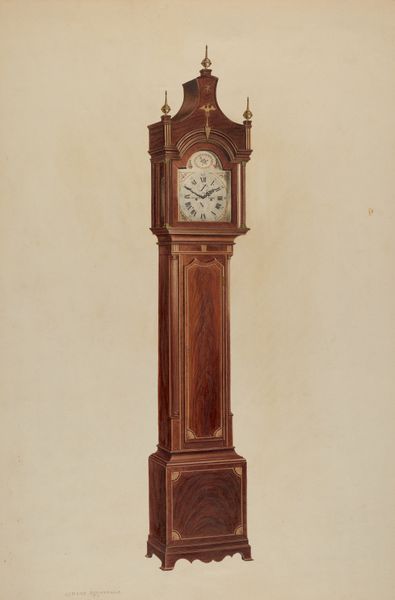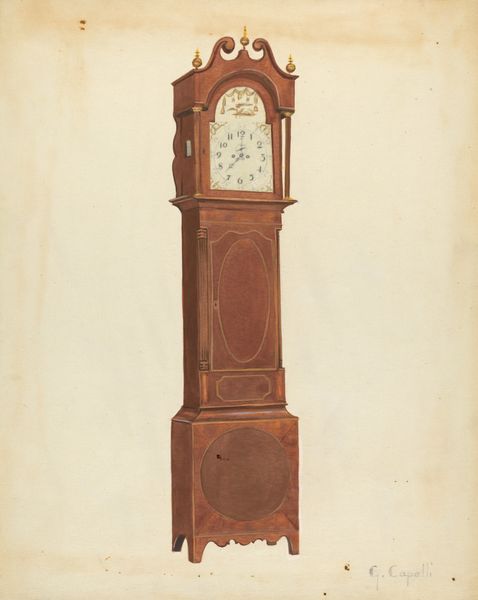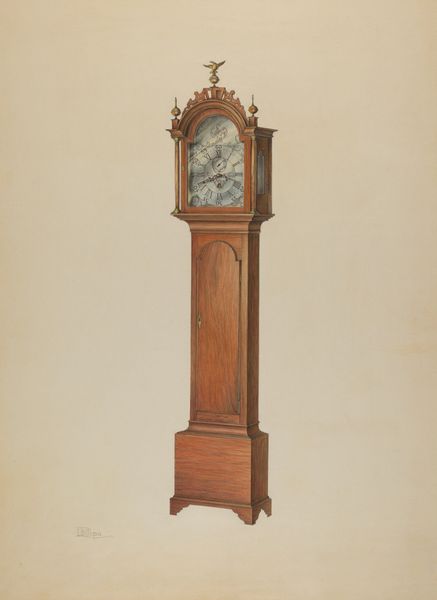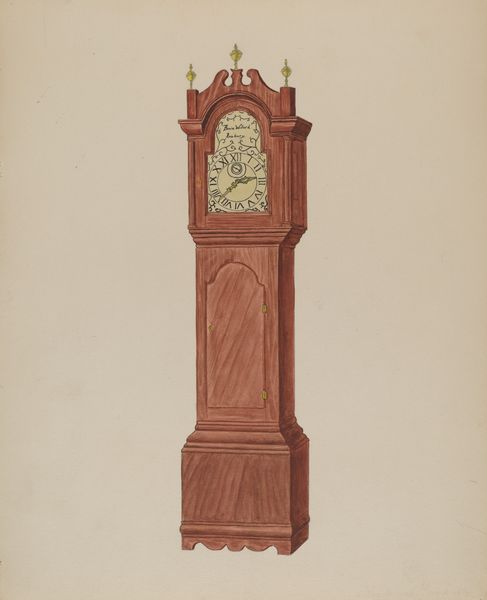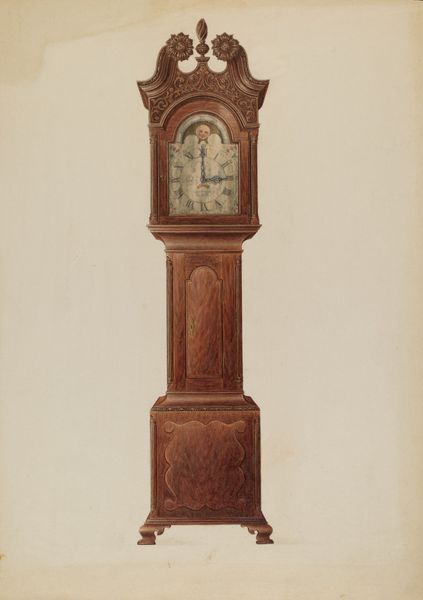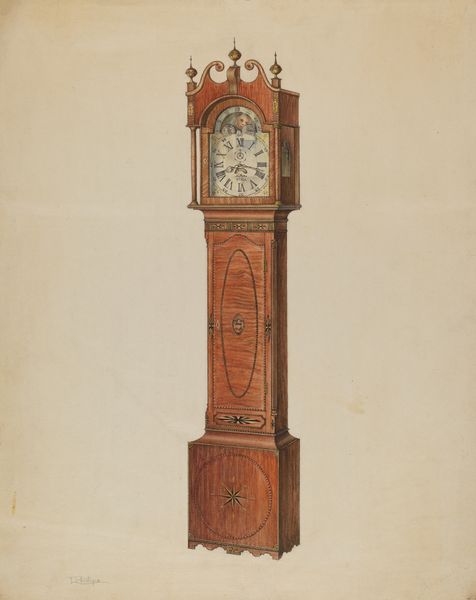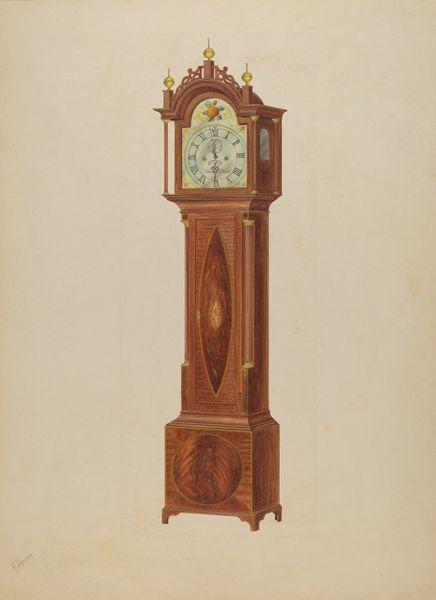
drawing, watercolor
#
drawing
#
water colours
#
charcoal drawing
#
watercolor
#
watercolour illustration
#
watercolor
#
realism
Dimensions: overall: 45.7 x 35.5 cm (18 x 14 in.) Original IAD Object: 7'10"high; 22"wide; 11"deep
Copyright: National Gallery of Art: CC0 1.0
Curator: The piece before us is "Duncan Beard Grandfather Clock," created around 1939, a watercolor and charcoal drawing by Ernest A. Towers, Jr. Editor: My initial reaction is one of stillness. The elongated vertical form creates a striking dominance against the blank backdrop, almost like a frozen moment in time. Curator: It's fascinating how the artist captured the texture of the wood, using varying shades and delicate brushstrokes. The piece embodies realism. Notice how the details of the clock face and the ornamental crown are rendered with precise line work and coloration, enhancing its verisimilitude. Editor: For me, grandfather clocks evoke powerful feelings connected to ancestral homes, duty, family, and legacies. Time, in the most traditional, domestic sense. But here it feels removed from such connotations. Isolated, suspended...almost like a memory rather than reality. Curator: I understand your perspective. Yet the form itself reveals something inherent. See how the central body of the clock acts as a perfect plane that directs the eye vertically? Note that Towers, Jr., may not simply intend on recreating but also, through precise compositional arrangement, exploring the clock’s platonic form. Editor: Right. So it's both subject and idea at once. These grandfather clocks are tied to our lives; we grow up with them as emblems of stability. To see it here, stripped to its bare form is...unsettling. Almost questioning what it represents beyond pure utility. It has strong ties with how we process and view the progression of life through mortality. Curator: Absolutely. Through these carefully chosen strokes, rendered so plainly, we start to consider this otherwise domestic apparatus as a sculptural, and thus profoundly affecting, entity. Editor: Well, the image certainly gives a new respect to the old saying, "Time marches on". Curator: Indeed. We’ve arrived at a greater consideration of form, utility, and enduring cultural objects by virtue of this exercise in seeing and describing!
Comments
No comments
Be the first to comment and join the conversation on the ultimate creative platform.
